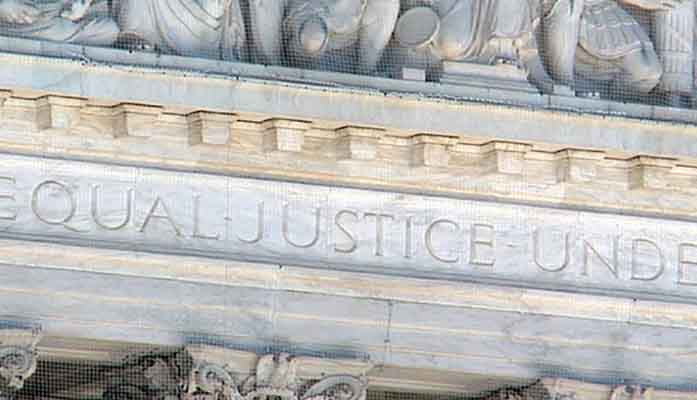
by Corinne Murdock | Aug 12, 2021 | Education, News
By Corinne Murdock |
25 Arizona House and Senate Republicans led by freshman State Representative Jake Hoffman (R-Phoenix) called for Governor Doug Ducey to do something about the school districts defying state law with their mask mandates. The news release on Wednesday revealed that Republican legislators have urged Ducey privately to take action, to no avail. This public statement appears to be their next step in convincing Ducey to enforce the law.
It’s been over a week since the first school district called a mask mandate: Phoenix Union High School (PXU). Other schools followed suit soon after: most recently, Flagstaff Unified School District (FUSD). Ducey hasn’t taken action – though his spokespersons have relayed Ducey’s finger-wagging statements of disapproval in response to those school districts.
The legislators proposed that Ducey respond to the districts’ actions by withholding federal funding, authorizing temporary Empowerment Scholarship Accounts (ESAs) for families, inform families of the law, and take legal action.
Hoffman’s statement explained that the ban on mask mandates included a retroactivity clause that puts it in effect – contradicting school districts’ insistence that the law can’t take place until 90 days after the end of the legislative session, per Arizona statute. He noted that the school districts’ behavior undermined lawful government and bordered on anarchy.
“Under Arizona’s constitutional form of government, local governments do not have the authority or power to usurp state law simply because they disagree, yet that is precisely the kind of illegal activity in which many local governments are presently engaged. The Arizona legislature, with the Governor concurring, very intentionally enacted the laws at hand to protect Arizonans and Arizona children from the threat of government mandating them to wear a mask or be injected with a vaccine,” wrote Hoffman. “A resounding message must be delivered to any local government or subdivision of the state considering defying state law – lawlessness will not be tolerated.”
https://twitter.com/AZHouseGOP/status/1425545781558218754
House Speaker Pro Tempore Travis Grantham (R-Gilbert) signed onto the statement admonishing Ducey. He told AZ Free News that he also supports law enforcement stepping in to enforce the law. Grantham hinted that this debacle sparked a legislative priority for next year – adding more teeth to legislation.
“It’s unfortunate that some of our government-funded schools have chosen to blatantly ignore state law and the will of the majority of Arizonans by instituting mandates regarding students wearing face coverings,” relayed Grantham. “I support executive action by the governor to include withholding of taxpayer dollars and expansion of school choice funding options giving more educational choices to parents. I also support any efforts by law enforcement to enforce state law and I encourage parents and teachers to follow state law when sending their children to school and when on school grounds. Next year I will make it a focus to hold those who violate state law accountable and ensure appropriate funding reductions are in place for districts that purposely violate the law.”
State Representative Joseph Chaplik (R-Scottsdale) also signed onto the statement. He reiterated to AZ Free News that disagreement with the law isn’t justification for violation of it. Chaplik wrote the legislation that effectively banned mask mandates in schools. He, too, asserted that the power to act is in Ducey’s hands.
“Just because some don’t agree with policy and law, we should not disrespect and violate it while also teaching children these illegal tactics,” said Chaplik. “We passed this policy due to the inconsistencies of results with mask use and the unknown long term health issues that can impair our children. We need to stop this madness. The legislature did its job and now the executive branch needs to enforce the law.”
As of press time, Grantham and Chaplik said that they haven’t seen or heard any responses from Ducey.
Corinne Murdock is a reporter for AZ Free News. Follow her latest on Twitter, or email tips to corinne@azfreenews.com.

by Corinne Murdock | Aug 12, 2021 | Education, News
By Corinne Murdock |
One week into Peoria Unified School District’s (PUSD) school year, parents are already reporting that their students have been required to quarantine until they receive a negative test result – even if they’re not symptomatic or feeling sick in the slightest. Students are required to quarantine 10 days at most, 3 if they test negative for the virus. However, these rules don’t apply to everybody.
Only fully vaccinated individuals, “essential worker” educators that are asymptomatic, and those who’ve recovered from COVID-19 in the last three months aren’t required to quarantine. According to PUSD policy, the district will continue to quarantine all others exposed to COVID-19 at the discretion of Maricopa County Department of Public Health (MCDPH). If the county determines that there’s been an “outbreak,” they will require all students exposed to the infected student to be quarantined.
Educators may remain in school so long as they wear masks if they’ve been exposed and are asymptomatic – but unvaccinated, asymptomatic students who haven’t contracted COVID in the last three months must go home.
“Students, staff, and educators who are close contacts of someone who has COVID-19 and are not fully vaccinated (or have not tested positive for and recovered from COVID-19 in the prior 3 months) must quarantine away from others for up to 10 days following their last exposure per MCDPH. Importantly, per CDC, ADHS, and MCDPH, all close contacts who have been fully vaccinated (starting 2 weeks after the final COVID-19 vaccine dose) do not need to quarantine if they do not have any symptoms. In other words, if identified as a close contact, the need to quarantine depends on a person’s COVID-19 vaccination status and/or COVID-19 infection history. MCDPH recommends that close contacts be tested for COVID-19 3-5 days following their last exposure, regardless of vaccination status.
Close contacts who must quarantine need to be excluded from school and extracurricular activities during their quarantine period. The duration of quarantine is either 10 full days or 7 full days following their last exposure, as long as a COVID-19 test performed on day 6 or 7 is negative and the contact has no symptoms. If a staff member or an educator is determined to be a close contact who must quarantine and they are considered to be an essential worker (as designated by the school), they can continue to work during their quarantine period if they do not have any symptoms and wear a mask while working. Please see the Quarantine Guidance on the MCDPH website for more detailed information.” (original emphasis included and emphasis added)
Previous Arizona Superintendent of Public Instruction Diane Douglas told AZ Free News that quarantining healthy students is negatively impacting their education. Douglas referenced the stunted reading skills of younger children who’d done distance learning due to COVID-19.
“The parents I hear from, they’re not happy. They don’t want their kids quarantined, potentially without an illness,” said Douglas. “We’re taking very extreme responses to something I don’t think deserves such an extreme response and we’re not looking at the damage it’s doing to our children’s learning.”
Douglas relayed the story of one mother who’d confided that her son was forced to quarantine 6 times for COVID-19 exposure – altogether, he missed 2 months of school – but he never became sick.
The former superintendent asserted that this continued exercise of power has gone too far.
“Unfortunately, and this in my opinion, they’ve just pretty much been given free reign to do whatever they want to do – I think it’s the old saying, absolute power corrupts absolutely,” said Douglas.
Corinne Murdock is a reporter for AZ Free News. Follow her latest on Twitter, or email tips to corinne@azfreenews.com.

by Corinne Murdock | Aug 11, 2021 | Education, News
By Corinne Murdock |
Arizona State University (ASU) announced Monday that it would be launching an elementary curriculum focused on social-emotional learning, diversity, equity, and inclusion. The curriculum will be part of their K-12 online schooling, ASU Prep Digital.
The curriculum will blend cultural competence (diversity, equity, and inclusion), social-emotional learning, and the Spanish language. The university noted that it will partner with Encantos, an online learning platform, to roll out this new curriculum. In doing so, the curriculum could be implemented easily through distance learning.
Diversity, equity, and inclusion (DEI) is often referred to together, but each are individual concepts with their own definitions. In the context of DEI, diversity represents any and all possible differences, such as race, ethnicity, gender, sexuality, gender identity, religion, caste, tribe, socio-economic status, and so forth.
Equity differs from equality. Rather, equity focuses on equality of outcome. Inclusion is a combined practice of diversity and equity – oftentimes, it signifies inclusion of diverse individuals for equitable outcomes.
Social-emotional learning (SEL) focuses on identity, emotions, attitudes, and beliefs; it promises to help individuals understand themselves, their role in the world, and their relationships to others. SEL is the vessel for DEI.
Encantos offers a vast array of curriculum peppered with social justice concepts. Their brand Tiny Travelers has K-5 educational materials on the Fourth of July, for example, that teaches children that Black Americans still aren’t free.
“In the decades following the Emancipation Proclamation, Black Americans have continued to struggle for equal rights and treatment, even to this day,” reads the activity sheet. “Native Americans were also subject to genocide and displacement as the colonies expanded to form what we now know as the United States after the signing of the Declaration of Independence.”
Despite emphasizing the evils of genocide, slavery, and current racial tensions for this country, Encantos’s Tiny Travelers educational materials for other countries don’t discuss any evils that plagued their country. China, for example, is described only in terms of its cultural practices.
Encantos CEO Steven Wolfe Pereira credited ASU for leading in progressive education.
“ASU is the undisputed leader in progressive education, modeling a stance on universal access with excellence, inclusivity, access, and impact as the core,” said Pereira. “We share these values and are thrilled to partner to introduce 21st-century skills, story-teaching, and learning through play to their schools, to ensure the 2 billion kids around the world all have an equal chance to reach their fullest potential.”
According to ASU, this new curriculum will be unique – the first of its kind. It will create “a more inclusive educational system that democratizes and diversifies learning.” ASU asserts that the need for this type of curriculum exists because future jobs will require different skills.
ASU expects to roll out this new curriculum by fall 2022.
Corinne Murdock is a reporter for AZ Free News. Follow her latest on Twitter, or email tips to corinnejournalist@gmail.com.

by Corinne Murdock | Aug 8, 2021 | Education, News
By Corinne Murdock |
Maricopa Community Colleges (MCCCD), announced they will offer educational events on critical race theory and other social justice topics through new “Cultural Humility and Equity Office Hours.” Both students and faculty may participate in these optional events, which run from next week until the end of 2022.
The content of the Cultural Humility and Equity Office Hours challenges recently-passed state laws. House Bill (HB) 2898 prohibits schools from teaching students that any race, ethnic group, or sex is superior to another and/or deserving of discrimination. Schools in violation of the law may be fined up to $5,000 for each violation. House Bill (HB) 2906 prohibits the state and any local government from requiring employee trainings, orientations, or therapies suggesting that someone is inherently and either consciously or subconsciously racist, sexist, or oppressive. Governor Doug Ducey signed both bills into law over the course of this summer; however, they don’t go into effect until September 29.
Although these Cultural Humility and Equity Office Hours are characterized as optional, MCCCD Board Member Kathleen Winn told AZ Free News that there’s an unofficial expectation for faculty to participate. This pressure reportedly comes from the Faculty Executive Committee (FEC).
“[The faculty] are in fear. When something like this happens and they feel differently, they pretty much just suck it up because what happens is retaliation. Retaliation is alive and well at the community college. They retaliate against someone that’s against their doctrine,” explained Winn.
As of press time, AZ Free News learned that none have taken legal action against MCCCD.
MCCCD Office of Diversity, Equity, Inclusion, and Engagement (DEIE) issued the announcement last week. Their first event, “Racelighting and Critical Race Theory,” will occur on Wednesday. According to the supplementary reading list for the event, racelighting is a take on gaslighting in which members of any race except the white race second-guess their experiences of racism and/or don’t recognize that negative life circumstances or events are a result of systemic racism.
Other readings for Wednesday’s event include a bill of rights for “people of mixed heritage,” and a 2014 article discussing critical race theory in K-12 and higher education. Critical race theory proponents have argued that critical race theory isn’t being taught in K-12 schools.
The other upcoming events for this year are: “Hiring Equity” with Professor Jaime Herrera, September 1; “Deferred Action for Childhood Arrivals (DACA),” September 8; “Dismantling Microaggressions in STEM and MCCCD” categorized as a “nationally recognized student-led session” and led by Dr. Nicole Neal, Chandler-Gilbert Community College, and students, date to be determined; “Structural Oppression in Higher Education: Accessibility” with Drs Jo Pina and Karen Winters, Justin Yarbrough, and Lisa Hitzler, October 13; “The Shift of Political Parties in the U.S.” by Professor John Coughlin, November 3; and “The Power of Music” by Professor Rod Golden. Next year, there is currently one event scheduled for each month.
Next year’s topics include “Educational Equity: The Ungrading Project,” “Educational Equity: What LGBTQT Students Want,” “Intersecting Religion with other Social Identities,” and “What it Means to Be White in the USA.”
Corinne Murdock is a reporter for AZ Free News. Follow her latest on Twitter, or email tips to corinnejournalist@gmail.com.

by Corinne Murdock | Aug 7, 2021 | Education, News
By Corinne Murdock |
The Goldwater Institute announced Thursday that it will represent a mother sued by the National Education Association (NEA) for daring to look into her school’s curriculum. The NEA is the largest teachers unions in the nation, with over $300 million to spend.
The Rhode Island mother, Nicole Solas, was slapped with the lawsuit on Monday. The NEA requested that the court prohibit the release of the records Solas sought. They alleged in their lawsuit that those records would cause teachers to be targeted and harassed by conservatives. Solas sought records pertaining to the teaching of critical race theory and gender theory, among other controversial topics.
“It is anticipated that teacher records will be produced that will be of a personal nature and will contain the identities of the teachers engaged in the personal communication as well as other communications that relate to the personal issues, disciplinary issues, performance issues, medical issues and issues not related to the official business of the School Department,” wrote the NEA. “[T]eacher emails will be produced that may or will continue discussion about critical race theory curriculum or other issues of ‘interest’ to the requestors that will contain individual teachers’ names and personally identifying information. Given the circumstances of the requests, it is likely that any teachers who are identifiable and have engaged in discussion about things like critical race theory will then be the subject of teacher harassment by national conservative groups opposed to critical race theory.”
Further, the NEA argued that not all records kept by public bodies were public record. It added that redaction of those records wasn’t always sufficient to ensure privacy.
In a press release, Goldwater Institute National Litigation Director Jon Riches assessed that this lawsuit is contrary to Solas’s rights as a parent and citizen.
“This brazen and unprecedented act of intimidation by the NEA will not stand,” said Riches. “Nicole Solas is entitled to know what her daughter’s school is teaching in the classroom. She’s entitled to ask questions. And she does not deserve to face legal action just for asking questions any concerned parent would ask.”
The debacle began when Solas submitted open records requests to her district this spring about the curriculum exposed to her daughter, as well as teacher correspondence
Ultimately, the district said it would cost Solas $74,000 to obtain the records. District policy states that they may charge 15 cents per page, and/or $15 per hour after the first hour of records retrieval. If the district was charging by the hour alone, it would take them a little over 4,900 hours, or 548 days (estimated based on 9 hour work days).
The lawsuit noted that the district released 6,500 pages of documents. That would cost about $975.
Solas hasn’t been discouraged by the lawsuit. Rather, she said that this would only help to further her cause for transparency.
“The NEA is so determined to push its political agenda that they are willing to expose themselves in a court of law for who they really are: an association of bullies eager to challenge a stay-at-home mom who simply wanted to know what her daughter would be taught,” said Solas. “This lawsuit won’t deter me from asking questions, and I encourage all parents to do the same, so that they are empowered to make informed decisions regarding their children’s education.”
The local NEA chapters, the National Education Association of Rhode Island (NEARI) and the National Education Association South Kingstown (NEASK), filed the lawsuit.
NEARI Deputy Executive Director Jennifer Azevedo said that NEA supports open records but believes that the interests of privacy outweigh the public interest in this case.
“We are asking the Court to conduct a balancing test to determine whether our members’ privacy rights outweigh the public interest,” said Azevedo. “We believe they do, and those records should either not be disclosed or should be redacted accordingly.
The NEA also named the school committee of Solas’s district, South Kingstown School District, as a defendant in the lawsuit.
Corinne Murdock is a reporter for AZ Free News. Follow her latest on Twitter, or email tips to corinnejournalist@gmail.com.

by Terri Jo Neff | Aug 7, 2021 | Education, News
By Terri Jo Neff |
In March, the Foundation for Rural Service (FRS) released a report on the pandemic’s impact across rural America, particularly after millions of people were forced to conduct most of their daily life, business, and education online.
“Never before has reliable access to high-speed internet been as important as it has been during the COVID-19 pandemic,” said FRS Executive Director Pam Becker. “Broadband connects us to our work, education, health care, government programs and—most importantly—one another.
In rural Arizona, the pandemic made it apparent that Internet “is quickly becoming the fourth utility and a necessity right along with gas, electricity, and water,” according to Heather Floyd, spokesperson for Valley TeleCom Group (VTC). “The pandemic only increased the speed that society moved to depending on Internet to facilitate our day to day lives.”
VTC started as a telephone cooperative serving southeast Arizona and southwest New Mexico in the 1960s. Over the years, its service area has expanded to provide phone and Internet service to more than 20 rural communities spread over thousands of square miles, many of which are in mountainous areas.
For the past five years, the company proactively installed fiber Internet technology to all the schools in its service area. When COVID-19 and its various lockdowns hit last year, the disparity between Internet service in Arizona’s rural and metropolitan areas became more glaring, particularly for kids forced into remote learning, said Floyd.
VTC officials stepped up and implemented a number of activities in response to COVID-19, including providing free Internet service for 40 homes from April to June 2020, installing 8 WiFi Hotspots throughout its territory, and offering discounted service for 37 households.
Then in May of this year, VTC got on board with the FCC’s Emergency Broadband Benefit Program (EBBP) which provided $10,000 each to 10 school district in the company’s service territory for the purchase of laptops and tablets for students doing in-home learning.
But VTC isn’t resting on its laurels, according to Floyd.
This school year, company officials continue to facilitate opportunities for students in VTC’s service communities, including providing 17 schools and 7 libraries with fiber internet, considered the best level of service. Also being continued is VTC’s involvement with the FCC’s EBBP which will provide a discount of up to $50 a month for households struggling to pay for Internet.
Schools within VTC’s service area also have a new tool -the FCC’s Emergency Connectivity Fund (ECF)- for providing in-home Internet access for students and teachers. ECF reimburses schools for equipment and internet access for those who need Internet connections placed in their homes.
And another option became available Aug. 1 for students unable to sign up for ECF, Floyd said. The option, Discounted Access for Student Homework (DASH), provides Internet service for students at only $29.95 per month. DASH, which is designed for educational use, is filtered to comply with the Children’s Internet Protection Act (CIPA), so many entertainment websites are blocked.
More information about VTC’s programs can be found at https://www.vtc.net






